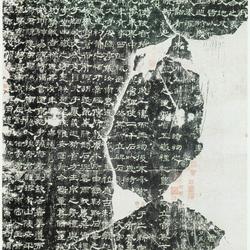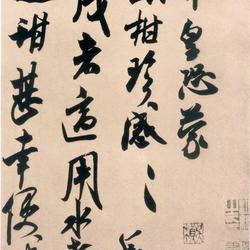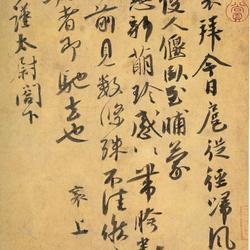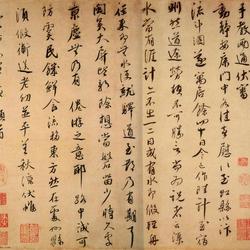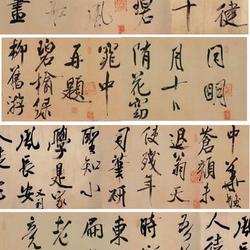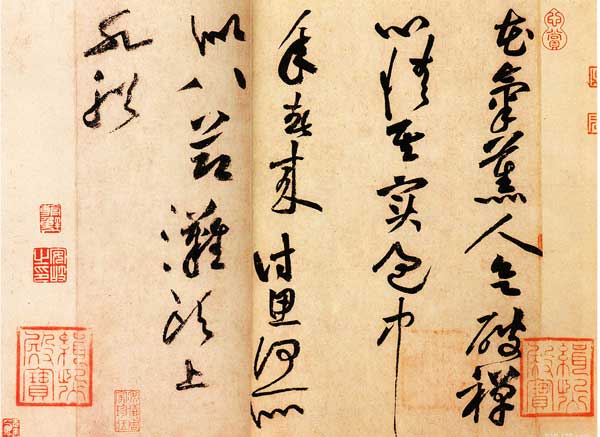
"Flower Qi Enhancing People's Tie", paper, vertical 30.7 cm, horizontal 43.2 cm, collected by the National Palace Museum, Taipei
This unmarked calligraphy seal was originally attached to two poems sent by Wang Gong, a friend in Yangzhou, in the second year of Yuanyou (1087), but now it has become a separate post. There was an original saying in front of it, saying: "Wang Jinqing (Xun) sent poems to ask for peace several times, but the old man didn't like to write. This Cao Cao was cunning, and he frequently sent flowers to ask for poems and make jokes." It can be seen that the original poem was composed by Wang Shen. , indicating that it is difficult to compose poetry. The pen is strong and firm, and the ink color has rich, dry and astringent changes. It is a rare piece.
The writing style of this post is vigorous, clumsy is better than skill, the fat pen has bones, the thin pen has flesh, "abnormal vertical and horizontal, powerful as if flying". Its beauty is no less than that of regular script. "The calligraphy of the valley, in his later years, he achieved the Zangzhen (Huaisu) Samadhi. His writing power is trance-like and trance-like. He is called the 'Grass Sage'." (Shen Zhou's inscription and postscript in the cursive "Li Bai Yijiu Travel Poetry Volume") At this time, Huang Tingjian's The art of cursive writing has reached a state of perfection. At this time, cursive calligraphy was highly praised by Zhang Xu and Huai Su for its flying and free charm, but also had its own style. The writing style is tight and sharp, with sharp and thin strength, strong momentum and various changes in structure.
Explanation:
The scent of flowers makes people want to break Zen, but the mood is actually past middle age. When spring comes, poems and thoughts are like a boat on the water on the eight-section beach.

